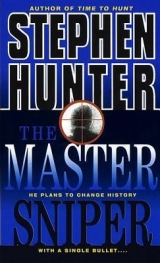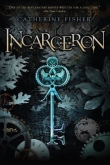
Текст книги "The Master Sniper"
Автор книги: Stephen Hunter
сообщить о нарушении
Текущая страница: 11 (всего у книги 22 страниц)
15
Repp paused, hungry. Should he eat the bread now, or later? Well, why not now? He’d been moving hard half the night and most of the day, pushing himself, and soon he’d be out of forest and onto the Bavarian plain. Good progress, he reckoned, ahead of schedule even, a healthy sign considering the somewhat, ah, hasty mode of his departure.
He sat on a fallen log in a meadow. He was at last out of the coniferous zone, in a region of elm and poplars. Repp knew his trees, and poplars were a special favorite of his, especially on a fine spring afternoon such as this one, when the pale sun seemed to illuminate them in an almost magical way—they glowed in the lemon light, translucent, mystical against the darker tracings of the limbs which displayed them. The still, austere beauty of the day made the spectacle even more remarkable—a clean beauty, pure, untainted, uncontrived—and Repp smiled at it all, at the same time pleased that his own sensitivity to such matters hadn’t been blunted by the war. Repp appreciated nature; he felt it important to good health, soundness of body and clearness of mind. Nature was particularly meaningful to his higher instincts in hard times like these, though it was rare that such natural beauty could be savored in and of itself, without reference to more prosaic necessities, fields of fire, automatic weapons placement, minefield patterns and so forth.
He tore into the bread. Dry, tough, it still tasted delicious. A good thing it had been in the pack when the Americans had come. Time only to grab the pack, throw it on and head for the tunnel. He’d made it after a long crawl across the open ground, American fire snapping into the ground around him. He curled in a gully by the tunnel entrance.
There were, in fact, six of them. Repp had insisted. He was a careful man who thought hard about likelihoods, and he knew no place in Germany in the late spring of 1945 that might not be assaulted by enemy troops, and if such an assault came, he had no intention of being trapped in it. He removed the camouflaged cover and squirmed down into the narrow opening. He slithered along. The space was close, almost claustrophobic, room for one thin man. Dust showered down on him as his back scraped the roof and the darkness was impenetrable. A great loneliness fell over Repp. He knew that even for a brave man panic was an instant away in a sewer like this. And who knew what creatures might be using it to nest in? It was damp and smelled of clay. Vile place: a grave. The world of the corpse.
He warned himself to be careful. Too much imagination could kill you just as quickly as enemy bullets. But Repp was used to working in the open, with great reaches beyond him. Here there was nothing except the dark. He could hold a hand to his face an inch in front of his eyes, and see nothing, absolute nothingness.
He pulled himself mechanically along, thinking this surely the worst moment in his long war, yet trying, desperately, to concentrate on the physical—the thrusts of his arms, the push of his legs, the slide of his torso. The roof pressed against his shoulders. At any moment it could come down. Repp wiggled along. Just a few more feet.
After what seemed years in the underground, he’d at last come to the end. He pulled himself the remaining few feet, but here the panic flappity-flapped through him; he thought of it as an owl, its wings unfurling frenziedly. The cool air came like a maddening perfume, rich and sensuous. The temptation to crash from the hole and dance for glee was enormous; he fought it. He edged back to the surface cautiously, without sudden movements. He emerged a few feet beyond the tree line. The fight still raged, mostly indistinct light and sound from here, but Repp hadn’t time to consider it. He continued his crawl through the trees, dragging the pack and rifle with him. Once or twice he froze, sensing human activity nearby. When he was finally certain he was alone, he pulled himself up. He quickly consulted the compass and set off.
His route took him past the firing range. He skirted it, unwilling to risk its openness even though it was still dark. A voice came suddenly, brazen and American. He dived back instantly and lay breathing hard. Americans? This far out?
He pushed back the brush and stared into the dark. He saw men moving vaguely. Must be some kind of patrol, an extra security measure way out here. But his eyes began to adjust and he could see the men gathering up long white shrouds. He had trouble making sense out of this and—
Parachutes.
He knew then that this was not some accident of war, an American reconnaissance in force blundering into his perimeter.
The parachutists had come after a specific objective.
They had come after him.
Repp knew he was being hunted. He felt a weight in his stomach. If it were just shooting, his skill against theirs, that would be one thing. But this business was far more complex and his own path only one route to the center. In at least a thousand other ways he was vulnerable. He could move perfectly, do all things brilliantly, and still fail.
He was ahead of them, but by what margin? What did they know? What remained in the ruins of Anlage Elf? Had they seen the documents from Financial Section? Had they learned the secret of the meaning of Nibelungen, the Reichsführer’s pet name, the joke he delighted in?
The worst possibility of all was that they had come across Nibelungen’s other half—the Spanish Jew, for whom all these arrangements had been made.
He stuffed what was left of the bread back into his pack, and walked on.
16
Leets was a man with problems. He had no Repp and not one idea in hell where the German was headed; worse, he had no idea where he himself was headed. His archeological expedition through the ruins of Anlage had come up bust—nothing but burnt files and shattered, blackened equipment. And corpses. In all this there was not one shard of pottery, not one scrap, one flake of debris that pointed to another step. The trail was stone cold.
Now he was reduced to hoping for luck. He sat by himself in front of an improvised table within the installation compound. Before him were what remained of several thousand 7.92-mm Kurz cases he’d had the paratroopers collect before they’d moved out.
Leets picked one up, and examined it with a sublimely ridiculous Sherlock Holmes magnifying glass. The shell in his huge grimy fingers glinted like the purest gold; Leets revolved it, studying its bland, flecked surface. He was looking for a gouge, a fracture mark, indicative of reloading, which in turn would be indicative of modification into one of the hand-tooled long-range custom jobs Repp had taken the patrol with. If he can find one, he can prove at least to himself Repp was here; he is not going insane. But nope, this shell holds no secrets; disgustedly, he tossed it into the pile at his feet, and plucked up another. He’d been at it now for hours, not exactly the sort of thing Army officers are expected to do at all, but what the hell, somebody’s got to do it.
At first it was Roger’s job, but the kid began wandering off. Roger had returned with special orders and presented them to Leets without one shred of embarrassment. The great Bill Fielding is putting on an exhibition in Paris ostensibly for the wounded boys, a morale builder, and Roger’d wangled his way into it. The OSS Harvard faction was keen to have the outfit represented, and Roger’d been anointed champion. He’d be taking off soon, and now he wasn’t worth a damn, off screwing around somewhere with his racquets.
But that left Leets alone with the headache and a tableful of shells and a sinking conviction he was getting nowhere. It was spring, full spring now, almost May. The Black Forest was turning green, and the air was pleasant, even if still heavy with the tang of ash. Leets returned to another shell. He was working slowly, because he wasn’t sure what the hell he’d do when he got finished.
A shadow fled across the table, then returned and paused, and Leets looked up from his collection and saw the Jew, Shmuel.
“Captain Leets?” the man said, looking absurdly American in his uniform, a white spiffy triangle of cotton undershirt showing above the top button of his wool OD shirt. Leets didn’t have the heart to tell him he was wearing the undershirt backward.
“A thought came to me. Maybe a help for you. Maybe not.”
Shmuel had never volunteered before, except in that frantic moment in the hospital when he insisted on making the jump. But now he was calm and composed. Or maybe it was only the weight he’d picked up since chowing with the Americans these last weeks.
“So go ahead,” Leets said. He still wasn’t sure what to call the man.
“Do you remember the bodies? The SS men? Before they were shoveled into the pit?”
“Yes, I do,” Leets said. Hard to forget.
“Something then bothered me. Now I can say it. It came to me in a dream.”
“Yes,” Leets said.
“The jackets. The ones with the spots.”
“The Tiger coats. Standard SS issue. You see them all over Europe.”
“Yes. Here’s the curiosity. They were all new. Every single one of them. It’s what made the dead so vivid. In January the coats were ragged and faded. Patched.”
Leets took all day before cooking up a response. “So?” he finally asked, confessing, “You’ve lost me.”
“So, nothing. I don’t know. But it struck me—strikes me—as peculiar.”
“Yeah, well, the Krauts got a batch of new coats. How about that? Hmm.” He turned it over in his mind several times, slowly, looking past the Jew, looking hard at nothing as he picked at this curious bit of info. A truck-load of jackets, over one hundred of them: quite a chunk of weight. Hard to believe the Germans would haul it up from the plains, over that muddy road. Trucks must have come in there all the time, of course, keep the place supplied. But all those coats …
“Thanks,” he eventually said. “Something to think about, though I’m not just sure what the significance is.”
The more he thought about it the more fascinating it seemed. Here it was, late in the war, very very late, two minutes to midnight, the Reich shattered, the supply system, like all systems, broken down. Yet they were shipping clothes about.
No, a more likely situation would be that the reinforced Totenkopfdivision company went somewhere to pick up the coats, someplace where piles and piles of the things were available—these were the March, 1944, model now, coats, not tunics, camouflaged, the four-pocket model with the snap buttons and the sniper’s epaulets: a new item in their battle-dress collection.
“Damnedest thing,” he said aloud.
The Jew still stood there. “I happen to know about these coats,” he said. “A little. Not a lot.”
“What?” Leets asked.
“One of the other prisoners told me he’d worked on them. In the factory as a laborer. He’d been a tailor and the SS sent him to work in their factory. In the plant. It’s a place where there’d be a lot of them. Not so far from here. No rail travel would be involved.”
“What place?” asked Leets.
“The SS Konzentrationlager Dachau,” said Shmuel.
17
In an otherwise quite pleasant ash tree, the deserter swayed heavily at the end of the rope, face blue, neck grotesquely twisted. He’d been stripped of gear and boots but boasted a sign: I’M A PIG WHO LEFT MY COMRADES!
“Poor devil,” said the man next to Repp. “Those SS bastards must have caught him.”
Repp grunted noncommittally. He’d picked up this platoon of drifting engineers a few miles back and with them he was making his way across the Bavarian plateau in the southern lee of the Swabian Jura.
“They get you and your papers are wrong and it’s—” Lenz made a comical imitation of a man choking in a noose.
Occasionally a vehicle would roll down the dusty road, a half-track once, a couple of Opel trucks, finally a staff car with two colonels in the back.
“They ride, we walk,” said Lenz. “As usual. They’ll get away, we’ll go to a PW camp. Or Siberia. That’s always the way it is. The little fellow catches—”
“Lenz, shut up,” called back Gerngoss, the fat Austrian platoon sergeant.
The platoon continued to move down the road, through an empty landscape. Ostensibly, they were headed for the town of Tuttlingen, several kilometers ahead, to blow up a bridge before the Americans arrived. But Repp knew this was a pretext; actually they were just moping around enough to pass the time until the Amis showed and they could surrender. They were not Totenkopfdivision boys, that was for sure.
Repp tuned out the chatter and plowed on. It was farming country, smoother here west of the River Lech, near the Lake of Konstanz. The Alps could be seen, especially the 9,000 feet of the Zugspitze, far to the south, unusual since it was not September or October. To the west, the Black Forest massif, off of which Repp had come, glowered smudgily against the horizon.
“Perfect hunting weather for Jabos. You’d think they’d be thick as flies, the bastards,” said Lenz.
“Oh, Christ,” said somebody.
Repp looked up.
It was too late to turn back, or fade off into the fields. They’d just rounded a bend in the road and there in the trees was a self-propelled antitank gun, huge thing, dragon on treads, riveted body, dun-colored. SS men in their camouflage tunics lounged about it, their STG’s slung. Repp could tell from the flashes they were from the Field Police regiment of SS “Das Reich.”
“Watch yourselves,” muttered Gerngoss, just ahead. “Don’t do anything stupid. These pricks mean business.”
The young officer in the open pulpit of the gun mount leaned forward and with an exaggerated smile said, “You fellows going to Switzerland?” He wore a metal plaque with an embossed eagle on a chain around his neck; it hung down on his chest like a medieval breastplate.
“A joker,” muttered Lenz.
“No, sir,” replied Gerngoss, trying to sound casual but speaking over dry breaths through a dry mouth, “just going on down the road to a job.”
“Oh, I see,” said the young officer affably, though his eyes were metallic. “And which one might that be?” As he spoke one of the other SS men climbed down off the hull, unslinging his rifle.
“We’re engineers, Lieutenant,” explained Gerngoss, his voice rising suddenly. “Headed toward Tuttlingen. A bridge there to be blown before the Americans get to it. Then we’ll rejoin our unit, Third Brigade of the Eighteenth Motorized Engineer Battalion, south of Munich. Here, I have the orders here.” He held them out. Repp could see his hand tremble.
“Bring them here, Sergeant Fatty,” the young officer said.
Gerngoss waddled over fretfully. In the shadow of the armored vehicle, he handed them up to the young officer.
“These orders are dated May first. Two days ago. It says you’re traveling by truck.”
“I know, sir,” said Gerngoss, a weak smile bobbing on his lips. “We were hit by Jabos yesterday. A bad day. The truck was crippled, some people hurt, had to find a field hospital—”
“I think you’re stalling.” He smiled. “Dawdling. Waiting for the war to end.” The SS lieutenant laid an arm across the MG-42 mounted before him. In his peripheral vision, Repp saw the SS man flanking off to the right, STG loose and ready.
“Oh, shit,” Lenz muttered tensely next to him.
“S-sir,” insisted Gerngoss, “w-we’re doing our jobs. Our duty.” His voice was small, coming from such a big man.
“I think,” said the lieutenant, “you’re a Jew-pig. A deserter. It’s because of swine like you that we lost the war. Fat anushole Austrian, can’t wait to get home and fuck Jew-cunts and eat pastries in the Vienna cafés with Bolsheviks.”
“Please. Please,” whimpered Gerngoss.
“Go on. Get out of here, you and your Army scum. I ought to hang you all.” He spoke with angry contempt. “Drag your fat asses out of here.”
“Yes, sir,” mumbled Gerngoss, and shambled away.
“Thank Christ,” muttered Lenz. “Sweet Jesus, thank Christ,” and the squad began to shuffle forward humbly under the sullen gaze of the SS men.
“Ah, one second, please,” the smiling lieutenant in the turret called out. “You, third from the end. Thin fellow.”
Repp realized the man was talking to him.
“Lieutenant?” he inquired meekly.
“Say, friend, I just noticed that the piping on your collar is white,” the smiler announced. He seemed quite joyful. “White—infantry. The others have black—engineers.”
“He’s not with us,” announced Lenz, stepping away quickly. “He straggled in yesterday.”
“He said he was trying to find his unit,” Gerngoss called. “Second Battalion of Eleventh Infantry. It sounded fishy to me.”
“I have papers,” Repp said. He realized he was standing alone on the road.
“Here. Quickly.”
Repp scurried over, holding the documents up. The young officer took them. As he read, his eyebrows rose. He was freckled and fair, about twenty years old. A lick of blond hair hung down from under his helmet.
“I was separated from my unit,” Repp said, “in a big attack, sir. The Americans came and bombed us. It was worse than Russia.”
The young lieutenant smiled.
“I’m rather afraid these papers aren’t any good. Waffen SS field regulations supersede OKW forms. As of May first, on the order of the Reichsführer SS. For the discipline of the troops. You don’t have LA/fifty-three-oh-four, or its current stamp. A field ID. It has to be stamped every three days. To keep”—the smile broadened—“deserters from mingling with loyal troops.”
“Most of them just stayed. Waiting for the Americans. I went on. To find the rest of my unit. I was wounded in Russia. I have the Knight’s Cross.”
“A piece of shit,” the officer said.
“I have a note from my captain. It’s here, somewhere.”
“You’re a deserter. A swine. We’ve run into others like you. You’re going where they are now. To a dance in midair. Take the pig.”
Repp felt the muzzle of the STG pressing hard into his back and at the same moment his own rifle was yanked off his back. Someone shoved him and he fell oafishly to the ground.
“You stinking fucker,” a teen-aged voice behind him cursed. “We’ll hang you till your tongue’s blue.” He hit Repp in the lower spine with his rifle butt. The pain almost crippled Repp. He yelped, lurching forward, and lay in agony, rubbing the bruise through his greatcoat.
The young soldier grabbed him roughly by the arm, pulling him up with great disgust, the STG momentarily lowered in the effort, and as Repp was twisted upward he laid the P-38 barrel against the youth’s throat and shot it out; then, as the boy fell back, very calmly Repp pivoted, steadying the pistol with the other hand under the butt, and shot the young officer in the face, disintegrating it. He shot two other men off the hull of the self-propelled gun where they sat, paralyzed, and dropped the pistol. He stood and pried the STG from the tight fingers of the first soldier, who lay back behind sightless eyes, slipping into coma, his throat spasming empty of blood. He wouldn’t last long.
Repp’s finger found the fire-selector rod of the assault rifle just above the trigger guard and he rammed it to full automatic, at the same time palming back the bolt. Three more SS men careered from behind the vehicle. He shot from the hip without thinking, one long burst, half the magazine, knocking them flat in a commotion of dust spurts. He ran another burst across the bodies just in case, the earth puffing and fanning from the strike of the bullets.
Repp stood back, the weapon hot in his hand. The whole thing had taken less than five seconds. He waited, ready to shoot at any sign of motion, but there was none.
What waste, what sheer waste! Good men, loyal men, doing their jobs. Dead in a freak battleground accident. He was profoundly depressed.
Blood everywhere. It speckled the skin of the self-propelled gun, swerving jaggedly down to the fender, where it collected in a black pool. It soaked the uniforms of the two men who lay before the big vehicle, and puddles of it gathered around the three he’d taken in the last long burst. Repp turned. The boy he’d shot in the throat lay breathing raspily.
Repp knelt and lifted the boy’s head gently. Blood coursed in torrents from the throat wound, disappearing inside the collar of his jacket. He was all but finished, his eyes blank, his face gray and calm.
“Father. Father, please,” he said.
Repp reached and took his hand and held it until the boy was gone.
He stood. He was alone in the road, and disgusted. The engineers had fled.
Goddamn! Goddamn!
It made him sick. He wanted to vomit.
They would pay. The Jews would pay. In blood and money.




![Книга Make Winning a Habit [с таблицами] автора Rick Page](http://itexts.net/files/books/110/no-cover.jpg)

